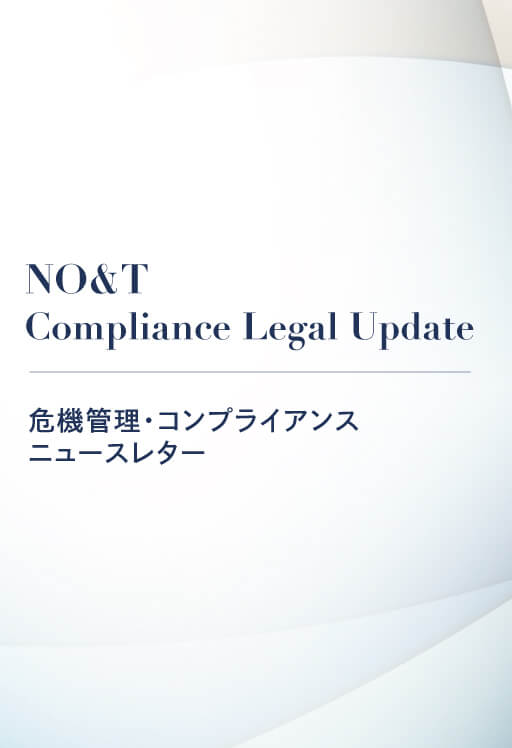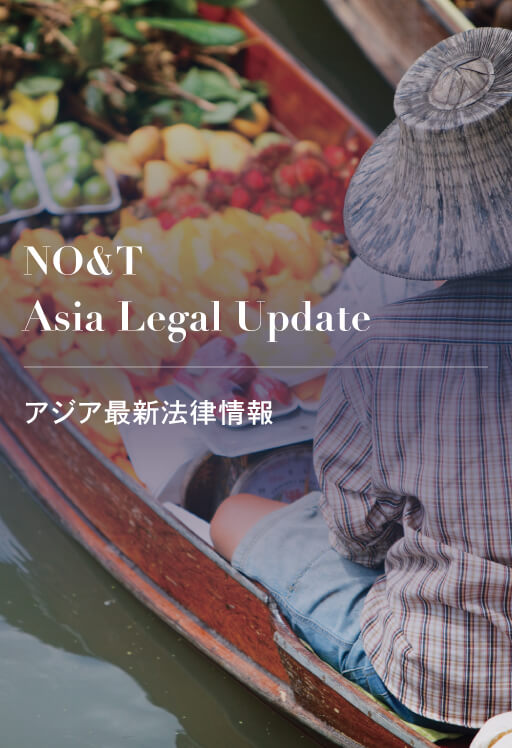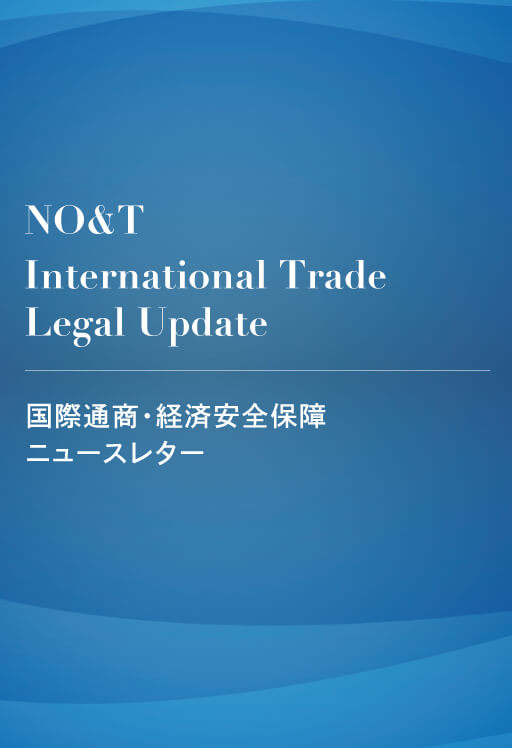
NO&T Japan Legal Update
英文
ESG is facing increased attention from various stakeholders, including regulators, investors and consumers, and among all, human rights, which is positioned as S in ESG, increases the need for due diligence in recent years. METI (The Ministry of Economy, Trade, and Industry) and MOFA (The Ministry of Foreign Affairs) conducted a survey last year regarding companies’ human rights due diligence, and it found that half of Japan’s publicly traded companies do not do due diligence on human rights. Of those who do not, around 30% said they do not know how to conduct such investigations. Since the survey was limited to listed companies and the response rate was not high, it is likely that many more Japanese companies have not actually conducted due diligence. However, with the upcoming guidelines (as described below) and European legislation, Japanese companies will be more required to perform human rights due diligence.
In March this year, METI established the Study Group on Guidelines for Respecting Human Rights in the Supply Chain for the purpose of publishing Japan’s first guideline for human rights due diligence. By creating this guideline, Japan hopes to close the gap with the U.S. and Europe, which are already responding to human rights concerns. The guideline will not be mandatory but will likely include recommendations on how companies should identify and assess risks, track and disclose their findings, and design grievance mechanisms for stakeholders should be designed. The targeted release date is Summer 2022.
The Corporate Governance Code, which is an instruction established by the Tokyo Stock Exchange for listed companies, was revised in 2021, and the revised code requires corporate boards to deal with sustainability issues, including “climate change and other global environmental issues, respect for human rights, fair and appropriate treatment in the workforce, fair and reasonable transactions with suppliers” and other matters, and states that these are all important management issues that can lead to profit opportunities as well as risk mitigation.
Further, companies to be listed in the Prime Market are required to meet a higher standard of disclosure, where the revised code states that those companies should enhance the quality and quantity of their disclosure in relation to sustainability based on the recommendation of the TCFD (Task Force on Climate-related Financial Disclosures) or its equivalent.
Additionally, according to the media reports, METI has recently requested ILO (International Labour Organization) to dispatch experts to production sites in Asian countries to examine the human rights risks of Japanese companies’ overseas business partners and encourage improvements. According to the announcement, ILO experts will be sent to production sites in Bangladesh, Vietnam, and Cambodia from April onward to check the status of human rights considerations for employees and compliance with labor standards laws and other laws and regulations.
When conducting human rights due diligence for Japanese companies, it is important to understand the human rights risks unique to Japan. First, in general, the supply chain of Japanese companies has traditionally been characterized by multiple layers of subcontractors in the supply chain, low visibility of the supply chain, and little substitution of procurement and production sites in the supply chain. Secondly, some companies are dependent on China and ASEAN countries for the procurement of raw materials and components.
Among industries, the textile industry is generally considered as one of the high-risk sector of human rights as it has built long supply chains that range from manufacturing raw materials of threads and textiles, to planning and manufacturing products, to distributing and selling them. METI established the sector-specific study group on Sustainability of Textile and Apparel Industry, and publicized a report last year. In the report, problems related to Technical Intern Trainee (ginou jisshusei), improving supply chain structure, formulating guidelines on Design for Environment have been pointed out. Japan Textile Industry Federation is also discussing preparing the sector-specific guideline for human rights due diligence and future movements should be closely watched.
This newsletter is given as general information for reference purposes only and therefore does not constitute our firm’s legal advice. Any opinion stated in this newsletter is a personal view of the author(s) and not our firm’s official view. For any specific matter or legal issue, please do not rely on this newsletter but make sure to consult a legal adviser. We would be delighted to answer your questions, if any.


(2025年4月)
若江悠


真武庆彦、丰田纱织(共著)、李红、若江悠(中文版负责律师)


若江悠


塚本宏达、福原步美、近藤亮作(共著)